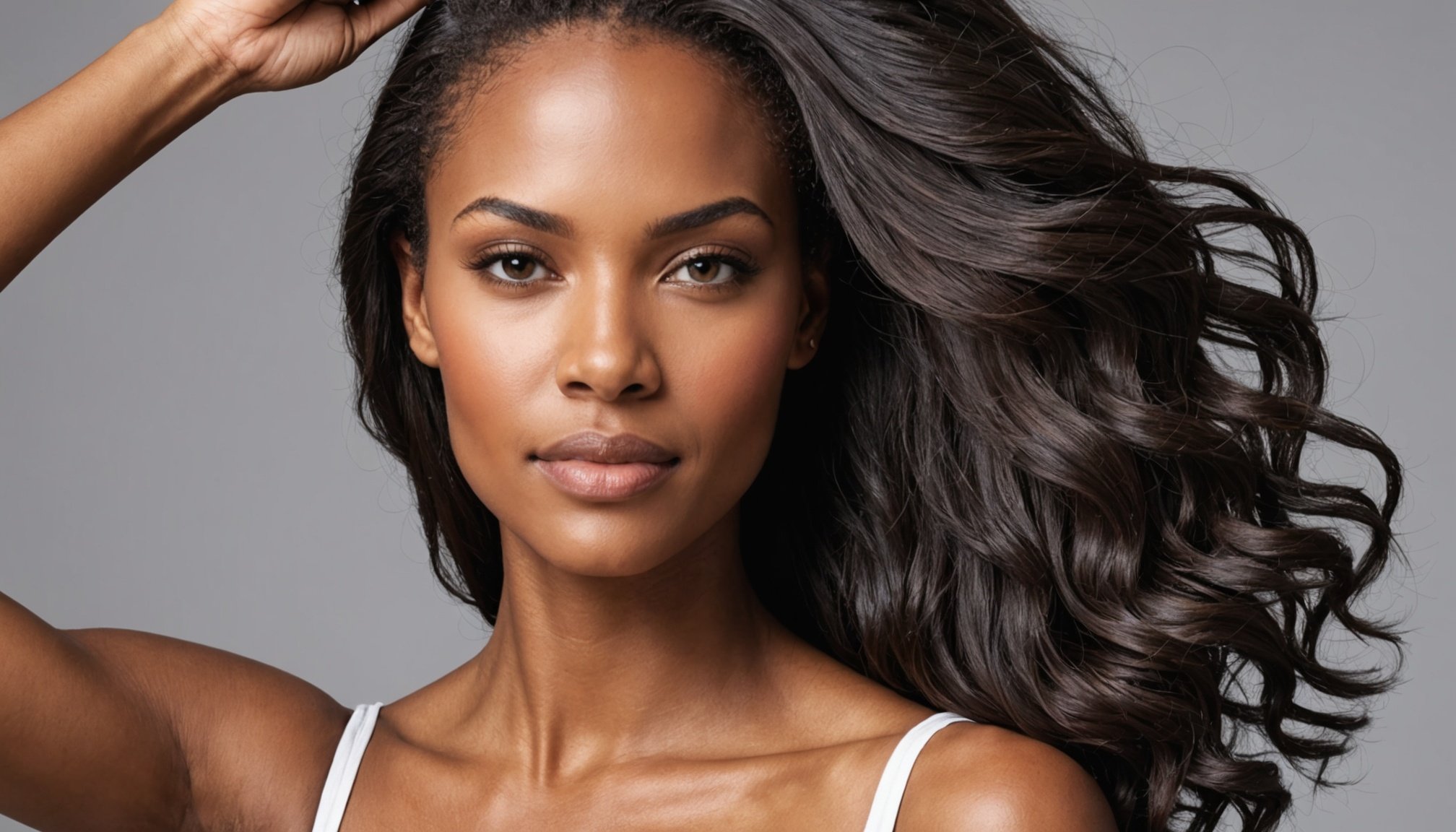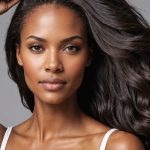Understanding Scalp Health
Maintaining scalp health is crucial for fostering healthy hair growth. A healthy scalp is the foundation for vibrant hair, contributing to both growth and the overall appearance of hair. When the scalp is in optimal condition, it provides the necessary environment for hair follicles to thrive, leading to stronger and shinier strands.
Common signs indicating poor scalp health include flakiness, itching, and excessive oiliness. These symptoms can disrupt the delicate balance needed for healthy hair growth. Issues such as dandruff or scalp psoriasis can also impede hair vitality, making it essential to address scalp health proactively.
Also to discover : Transforming your mind: how gratitude journaling enhances mental wellbeing
The relationship between scalp health and hair appearance is intertwined. A well-maintained scalp ensures that hair retains its natural lustre and strength. Conversely, a neglected scalp can lead to dull, brittle hair that is prone to breakage and shedding. Ensuring proper scalp care not only enhances hair aesthetics but also boosts overall confidence.
It’s important to incorporate routine habits that promote scalp vitality, such as using gentle hair products, regular scalp massages, and maintaining a balanced diet. These steps support a nourishing environment for both the scalp and hair to flourish.
Additional reading : Transform your home décor: the benefits of embracing natural materials
Daily Routines for Scalp Care
Establishing an effective scalp care routine is key to maintaining healthy hair and overall cleanliness.
Developing a Cleansing Regimen
To begin your daily hair care regimen, selecting the appropriate shampoo tailored to your hair type is essential. Consider whether your hair is oily, dry, or combination to choose a shampoo that meets these needs without damaging your scalp.
Ideal washing frequency varies with different scalp conditions. For an oily scalp, it’s beneficial to wash your hair more frequently, perhaps daily, to eliminate excess sebum. In contrast, a dry scalp might require less frequent washing, typically every two to three days, to preserve natural oils.
Effective scalp cleansing techniques involve massaging the shampoo into the scalp using your fingertips (not nails) to stimulate blood circulation and thoroughly breakdown dirt and oils. Rinse thoroughly to ensure no product residues remain, as these can lead to scalp irritation.
Engaging in a well-informed scalp care routine promotes better hair health, resulting in a clean, nourished scalp. By being mindful of your hair type and scalp condition, you can optimize your hair care practices for ideal cleanliness and health.
Effective Scalp Massages
Scalp massages offer a plethora of benefits, particularly in enhancing blood circulation. Improved blood flow to the scalp can promote hair growth by delivering essential nutrients directly to hair follicles. This process not only aids in strengthening the hair but also contributes to overall scalp health, reducing issues like dryness and flakiness.
For those seeking to maximise the benefits, understanding various scalp massage techniques is crucial. Basic techniques involve using the fingertips to apply gentle, circular motions across the scalp. Additionally, incorporating specific tools can enhance the experience; for example, scalp massage brushes can stimulate the scalp more effectively compared to manual methods.
To achieve optimal results, consider the frequency and duration of your scalp massages. It’s recommended to engage in scalp massages at least thrice a week, with each session lasting around five to ten minutes. This consistency allows the benefits, such as relaxation and potential hair growth, to fully manifest over time. Incorporating these massages into your regular routine can serve as a moment of relaxation and self-care, highlighting the dual benefits of both mental relaxation and scalp vitality.
Nutritional Insights for Scalp Health
Understanding the connection between a diet for scalp health and overall well-being can significantly influence hair growth. A balanced diet rich in essential nutrients plays a crucial role in maintaining a healthy scalp environment. Incorporating specific foods for hair growth can provide the scalp with the nourishment it needs.
Essential Nutrients for Scalp Health
Key vitamins and minerals such as Vitamins A, C, and E, along with zinc and iron, are fundamental for promoting hair growth. These nutrients help fortify hair follicles and enhance scalp health. Including foods like spinach, nuts, and seeds in your diet can offer these vital elements. Vitamin C aids in collagen production, while iron prevents hair loss by boosting circulation to hair roots.
Hydration also plays a vital role in sustaining scalp vitality. Adequate water intake ensures that cells in the scalp are plump and moisturized, preventing dryness and flakiness. Drinking at least eight glasses of water a day can make a tangible difference in scalp health.
Supplements to Consider
Various supplements are marketed for hair and scalp health, with biotin, omega-3 fatty acids, and vitamin D being popular. While these supplements can help, assessing their safety and efficacy is important. Before adding any supplement to your diet for scalp health, consulting with a health professional is highly advisable to ensure it suits your individual needs.
Addressing Common Scalp Issues
Many individuals struggle with scalp problems, ranging from minor irritations to more persistent conditions.
Identifying Common Scalp Concerns
Understanding scalp issues is crucial for effective treatment. Commonly observed problems include dandruff, psoriasis, and excessive oiliness. Dandruff often presents as flaky skin on the scalp, sometimes accompanied by itching. Psoriasis can cause red patches and silvery scales, while oiliness might manifest as greasy hair. Recognising these symptoms early can ensure timely intervention and relief.
Recommended Solutions and Treatments
Finding effective solutions for scalp problems often begins with over-the-counter products. Anti-dandruff shampoos containing zinc pyrithione or selenium sulfide can significantly reduce flakes. Meanwhile, natural remedies, such as tea tree oil, can provide soothing relief for itching and discomfort without harsh chemicals. However, some cases may require professional attention. If symptoms persist or worsen, consulting a dermatologist is advisable to explore advanced treatments specifically tailored to individual needs.
Building Credibility with Expert Insights
Expert recommendations play a pivotal role in the realm of hair care, guiding individuals to choose practices and products that best suit their needs. When it comes to authority sources, dermatologists and trichologists are often at the forefront, armed with knowledge and expertise in scalp and hair health. These experts provide scientifically-backed insights that enhance credibility and reliability.
Notable professionals to follow in this field include award-winning stylists like Jen Atkin and dermatological experts such as Dr. Shereene Idriss. Their advice is often featured in esteemed publications, further establishing their authority. Following these experts can help individuals stay informed about the latest expert recommendations, ensuring they adopt practices that promote healthy hair.
Testimonials also offer valuable perspectives from users who have experienced tangible results. They serve as a practical supplement to expert advice, showcasing real-world success stories. By listening to others’ experiences, individuals can gauge which methods may work for them, adding a personal touch to expert-driven insights. In hair care, combining testimonials and expert opinions ensures a well-rounded, credible approach that empowers consumers to make informed decisions.











